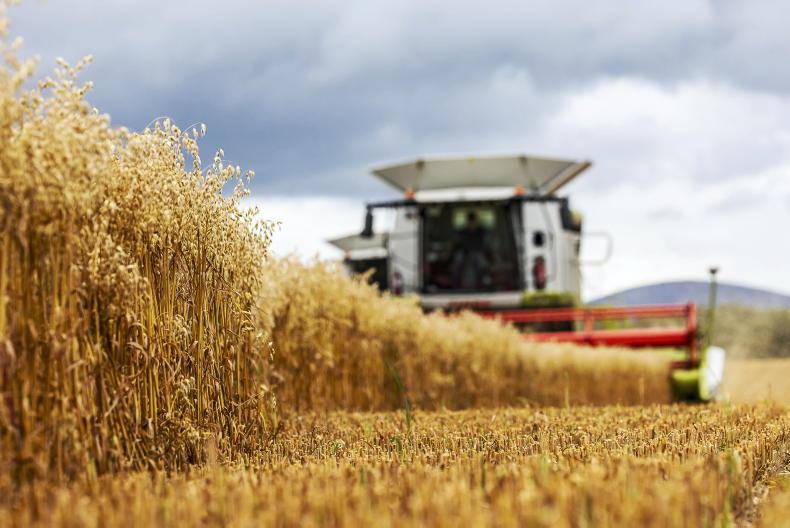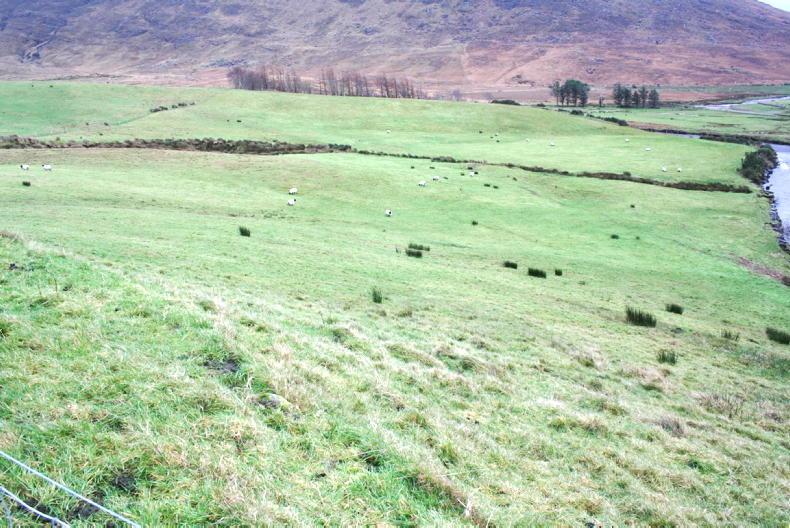The phenomenal strides that farmers and scientists have made in recent decades to adequately feed a growing world population is under appreciated by almost everyone who eats food.
Indeed, it is far more common for the intensification of agriculture to be criticised for its impact on the environment, rather than commended for what it has done to overcome hunger.
A lot of that criticism is justified and there is no doubt that more needs to be done to lessen farming’s environmental footprint. However, the main purpose of agriculture is to feed people and that mammoth task is being achieved.
In his book, How The World Really Works, scientist Vaclav Smil points out that since 1950 there has been an eight-fold increase in the number of people that are adequately fed in the world.
Back then, the proportion of the world’s population that was under-fed stood at 65% but, by 2019, it had fallen to under 9%. Over the same period, global population rose from 2.5bn to 7.7bn, and it now exceeds 8bn.
The fact that some people are still hungry in today’s world is a moral outrage, although it comes down to the distribution of food and not production shortages.
Fossil fuels
It is well recognised that higher crop yields since the middle of the last century are the result of better genetics, mechanisation, fertilisers, irrigation and plant protection products (PPP).
However, Smil argues in his book that the role that fossil fuels play in modern food production is often overlooked.
The direct use of fossil fuels includes powering farm machinery and lorries for transport. Indirect uses mainly include the manufacture of machinery, fertilisers, PPP and plastics.
The author argues that without fossil fuels, we could not have supplied 90% of humanity with adequate nutrition, while also reducing the amount of time and area of land needed to feed each person.
Labour demand
It is a concern of many modern-day farmers that consumers are far removed from food production. However, it should be recognised that reducing the labour demand in agriculture has been a crucial part of human progress.
With less help needed in the fields, people have been freed up to do things like discover antibiotics and invent the light bulb.
Smil gives an example of the drastic decline in agriculture’s labour demand by comparing the changes in wheat production in the US from 1801 to 2001.
“In two centuries, the human labour to produce 1kg of American wheat was reduced from 10 minutes to less than two seconds. That is how our modern world really works,” he writes.
He also outlines a series of detailed calculations to illustrate the volume of fuel that is typically needed to produce bread, chicken, and tomatoes.
Smil’s final numbers are surprising with 1kg of bread requiring 210-250ml of fuel, chicken sits at 300-350ml, but tomatoes from heated plastic greenhouses can be as high as 650ml.
De-carbonise
As governments move to de-carbonise their economies, can we aim to produce all our food organically without any fossil fuel input? Smil thinks not.
He describes the idea of reverting to preindustrial farming as “inconceivable”, mainly because the labour demand for food production would require most people to move back to the countryside.
“Even if they were willing to empty the cities and embrace organic earthiness, they could still only produce enough food to sustain less than half of today’s global population,” Smil writes.
He appears equally sceptical of campaigners who want to end all livestock farming and argues the “quest for mass-scale veganism is doomed to fail” because eating meat has been a “significant component of evolutionary heritage”.
That said, Smil states there is scope to reduce meat consumption in most rich countries, but he points out that this is not a realistic option for developing nations.
“There are billions of people in Asia and Africa whose meat consumption is minimal and whose health would benefit from more meaty diets,” he writes.
Book and author background
In How The World Really Works, Vaclav Smil gives an overview of seven topics that are fundamental to modern civilisation, with food production being one key area.
He calls out many common misconceptions about the world and gives a balanced but fact-based insight into our past, present, and future.
Smil is Distinguished Professor Emeritus at the University of Manitoba in Canada. He is the author of over 40 books on topics including energy, population change, food production and public policy.

How The World Really Works is published by Penguin Books Ltd.
The phenomenal strides that farmers and scientists have made in recent decades to adequately feed a growing world population is under appreciated by almost everyone who eats food.
Indeed, it is far more common for the intensification of agriculture to be criticised for its impact on the environment, rather than commended for what it has done to overcome hunger.
A lot of that criticism is justified and there is no doubt that more needs to be done to lessen farming’s environmental footprint. However, the main purpose of agriculture is to feed people and that mammoth task is being achieved.
In his book, How The World Really Works, scientist Vaclav Smil points out that since 1950 there has been an eight-fold increase in the number of people that are adequately fed in the world.
Back then, the proportion of the world’s population that was under-fed stood at 65% but, by 2019, it had fallen to under 9%. Over the same period, global population rose from 2.5bn to 7.7bn, and it now exceeds 8bn.
The fact that some people are still hungry in today’s world is a moral outrage, although it comes down to the distribution of food and not production shortages.
Fossil fuels
It is well recognised that higher crop yields since the middle of the last century are the result of better genetics, mechanisation, fertilisers, irrigation and plant protection products (PPP).
However, Smil argues in his book that the role that fossil fuels play in modern food production is often overlooked.
The direct use of fossil fuels includes powering farm machinery and lorries for transport. Indirect uses mainly include the manufacture of machinery, fertilisers, PPP and plastics.
The author argues that without fossil fuels, we could not have supplied 90% of humanity with adequate nutrition, while also reducing the amount of time and area of land needed to feed each person.
Labour demand
It is a concern of many modern-day farmers that consumers are far removed from food production. However, it should be recognised that reducing the labour demand in agriculture has been a crucial part of human progress.
With less help needed in the fields, people have been freed up to do things like discover antibiotics and invent the light bulb.
Smil gives an example of the drastic decline in agriculture’s labour demand by comparing the changes in wheat production in the US from 1801 to 2001.
“In two centuries, the human labour to produce 1kg of American wheat was reduced from 10 minutes to less than two seconds. That is how our modern world really works,” he writes.
He also outlines a series of detailed calculations to illustrate the volume of fuel that is typically needed to produce bread, chicken, and tomatoes.
Smil’s final numbers are surprising with 1kg of bread requiring 210-250ml of fuel, chicken sits at 300-350ml, but tomatoes from heated plastic greenhouses can be as high as 650ml.
De-carbonise
As governments move to de-carbonise their economies, can we aim to produce all our food organically without any fossil fuel input? Smil thinks not.
He describes the idea of reverting to preindustrial farming as “inconceivable”, mainly because the labour demand for food production would require most people to move back to the countryside.
“Even if they were willing to empty the cities and embrace organic earthiness, they could still only produce enough food to sustain less than half of today’s global population,” Smil writes.
He appears equally sceptical of campaigners who want to end all livestock farming and argues the “quest for mass-scale veganism is doomed to fail” because eating meat has been a “significant component of evolutionary heritage”.
That said, Smil states there is scope to reduce meat consumption in most rich countries, but he points out that this is not a realistic option for developing nations.
“There are billions of people in Asia and Africa whose meat consumption is minimal and whose health would benefit from more meaty diets,” he writes.
Book and author background
In How The World Really Works, Vaclav Smil gives an overview of seven topics that are fundamental to modern civilisation, with food production being one key area.
He calls out many common misconceptions about the world and gives a balanced but fact-based insight into our past, present, and future.
Smil is Distinguished Professor Emeritus at the University of Manitoba in Canada. He is the author of over 40 books on topics including energy, population change, food production and public policy.

How The World Really Works is published by Penguin Books Ltd.











SHARING OPTIONS